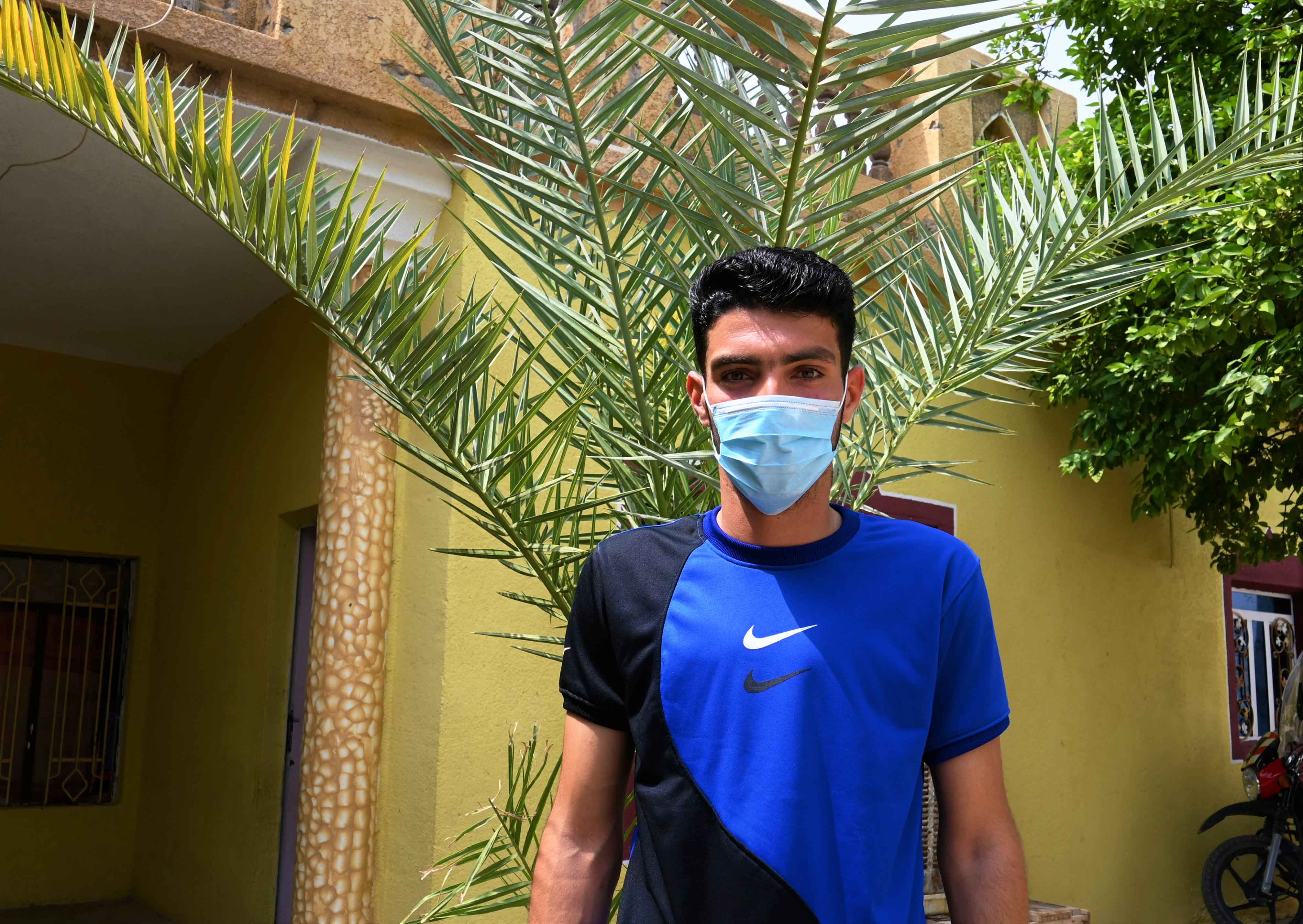Young people in Diyala were quick to develop business ideas using their savings from a cash-for-work opportunity.
During a verification process in Maqdadiya, Diyala. All cash-for-work participants are verified before starting the project. Photo: UNDP Iraq
Life for millions of young Iraqis was turned upside down in 2014 when ISIL began a rapid advance that saw tragic waves of violence across the country. The conflict left homes destroyed, people displaced, and livelihoods ruined. It especially affected young Iraqis and graduates preparing to enter the job market. Despite this, they have been working hard to rebuild.
Four bright young graduates from Maqdadiya – Jamila, Adnan, Shaima, and Rasha – were hired as community mobilizers for 40 days (about 1 and a half months). They were responsible for generating awareness about cash-for-work activities within their locality and registering potential participants. The earnings gave them an immediate boost in household income. They were quick to think of business ideas and start saving.
Photo: UNDP Iraq/Mrinalini Santhanam
Jamila, 24
Bachelor of Science in Biology from College of Basic Education, Diyala University
"When we returned home after my village was liberated from ISIL, my parents started to push me to think about my higher education. They have always wanted me to be successful and get a job. Today, I hope to find a sustainable job and support my parents, especially since they have encouraged me to study and build a life of my own."
Jamila and her family fled for their lives in 2014 during the ISIL occupation. They returned a year after Maqdadiya was liberated. Her parents started to save money so that she could pursue her higher education at Diyala University.
In 2019, Jamila successfully graduated and had since been running a tuition center for primary school students from her home. Earning just enough to make ends meet, she has also been actively looking for other job opportunities. Today, she is determined to start an education center using her savings.
Photo: UNDP Iraq/Mrinalini Santhanam
Adnan, 22
Bachelor in Sports from Baquba University
"The conflict has impacted the job market. I hope to use my earning as a community mobilizer with the cash-for-work project to save and start a small business with my friend. We both want to pool our earnings and start a barbershop. We must be smart and think on our feet to build back our lives. The responsibility of recovering from the devastating war lies on young Iraqis."
Adnan and his family returned to Maqdadiya in 2015, right after liberation from ISIL. He graduated from university last year and has since been looking for a job. Coming from a family of nine, Adnan is under a lot of pressure to provide for his family. He has been doing odd jobs such as driving, cleaning, and construction work to make ends meet. He plans to save around US$ 400 from his earnings to start a barbershop.
Photo: UNDP Iraq/Mrinalini Santhanam
Rasha, 24
Diploma in Information Technology from Baquba University
"In our tribal community, women are not encouraged to work. As young women like us work, I can slowly see mindsets changing. I still think we do have a long way to go. I hope to inspire other young girls to break the mold with me."
Rasha plans to start a laptop and mobile service center. If this does not work out, she hopes to create a painting or interior design business. With multiple plans in motion, she has saved 50 percent of what she needs to start this venture.
Photo: UNDP Iraq/Mrinalini Santhanam
Shaima, 29
Bachelors in Geography from Baquba University
"I encourage young people, especially women, to go out and work. Families need to create a supportive environment for this to be possible. They need to understand that the more members of the family that go to work, the more income the house generates. Also, as young and educated people, we have more exposure and skills. I urge them to leverage this, be smart with finances, and create businesses that in return create more job opportunities for the community."
Shaima graduated in 2013 but soon after fled to Baghdad during the conflict. She returned in 2019 and started volunteering as a government teacher at a nearby school. Looking ahead, she wants to start a school or run a small organization to provide young girls in her village education using her savings.
Shaima, Rasha, Adnan, and Jamila are among 51 other community mobilizers in Diyala that have received short-term employment. Currently, there are a series of community driven cash-for-work projects employing over 2,900 residents in Diyala to rehabilitate schools, roads, parks, and medical centers.
The project is implemented by UNDP's Iraq Crisis Response and Resilience Programme (ICRRP) in partnership with Oxfam, with funding from the German Federal Ministry for Economic Cooperation and Development (BMZ), provided through KFW Development Bank.

 Locations
Locations









